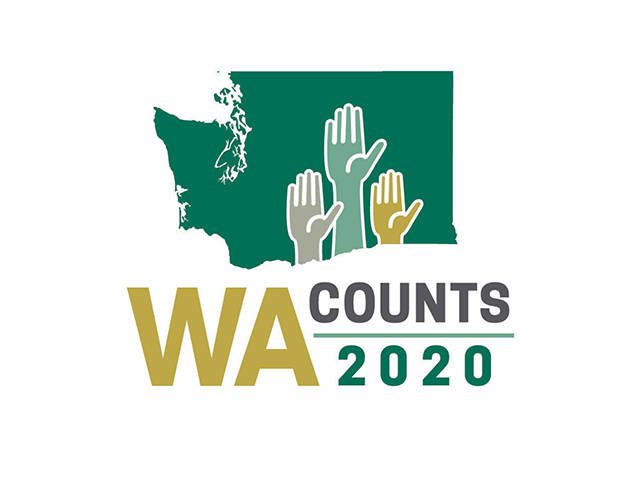ARLINGTON – With the 2020 U.S. Census only weeks away, residents are being urged to make themselves count by completing the brief survey that decides how federal tax dollars are divvied back into communities like Arlington.
“The decennial Census is a self-portrait of the nation,” said Lisa McLean, Census coordinator for Complete Count in Washington state. “The goal is to count everyone only once, in the right place.”
In an age where life is more complicated and more Americans get their information from devices and gadgets, the Census is moving away from paper surveys as the main way to gather data, which might also save a little money, too.
Residents will be able to respond to this Census on the internet, tablets or mobile phones, while Census workers in the field will use mobile phone apps.
Although the Census does not kick off officially until Census Day April 1, residents will be able to start self-responding online March 12. A notice will arrive in the mail explaining online and by-phone options. A follow-up reminder letter and postcard to take the survey will be sent to homes to get numbers up.
Residents who prefer the traditional paper Census will need to wait until April 8-16 for it to arrive in the mail.
“You can’t get it online ahead of time, you can’t call to ask for it,” McLean said. “The only way you will get it is to wait for the fourth mailing.”
A few weeks after April 1, census takers will start visiting homes that haven’t responded.
The U.S. Census is mandated under the Constitution, and the population has been counted every 10 years since 1790.
McLean said participating in the Census is important to democracy and the distribution of political power. In 2010, for example, Washington state gained an extra seat in the U.S. House of Representatives.
The main reason?
“It’s about money,” McLean said.
In 2016, the federal government dispersed $880 billion to local governments. Of that, $16.7 billion went to Washington state, or about $2,319 per person, helping fund health, education, housing, rural assistance, bridge and highway maintenance, and other areas.
She said for every 100 households missed, $5.8 million is left on the table. Without an accurate snapshot in 2020, it impacts the way her office with the state Office of Financial Management completes it future population projections.
The questionnaire reportedly takes about 10 minutes to answer 10 questions, but times may vary.
The survey questions ask for a home address, how many live in the household; names, ages, gender and race of each person; and the relationship of each person in the home to each other.
The citizenship question, “Is this person a citizen of the United States?” is not one of the Census questions.
McLean said the biggest obstacle about the Census is people don’t trust it, and general mistrust of government.
She explained that the Census is governed by Title 13 of the U.S. Code, confidential for 72 years, and it is information that can only be used for statistical purposes.
“The people who work for the Census Bureau are so committed to make sure that you understand they want to keep this information secret and private,” McLean said.
She emphasized again that, “It’s a process about deciding what is important to our communities.”
Census jobs
During the 2010 Census as the U.S. was coming out of the recession, the Census was part of a stimulus package and people were leaping on the jobs, McLean said.
Not so in 2020, where officials are having a difficult time filling positions.
It’s not too late to apply for temporary part-time paid positions with the Census. For details, go to www.2020census.gov.
A Census recruiter will be at the Arlington Library, 135 N Washington Ave., to help with applications for Census jobs during the following times:
Friday, Feb. 28, 10:00 a.m. to noon
Saturday, March 7, 10 a.m. to noon
Joining the Census Team pays from $20-$22 per hour plus mileage. Flexible hours, paid training.



